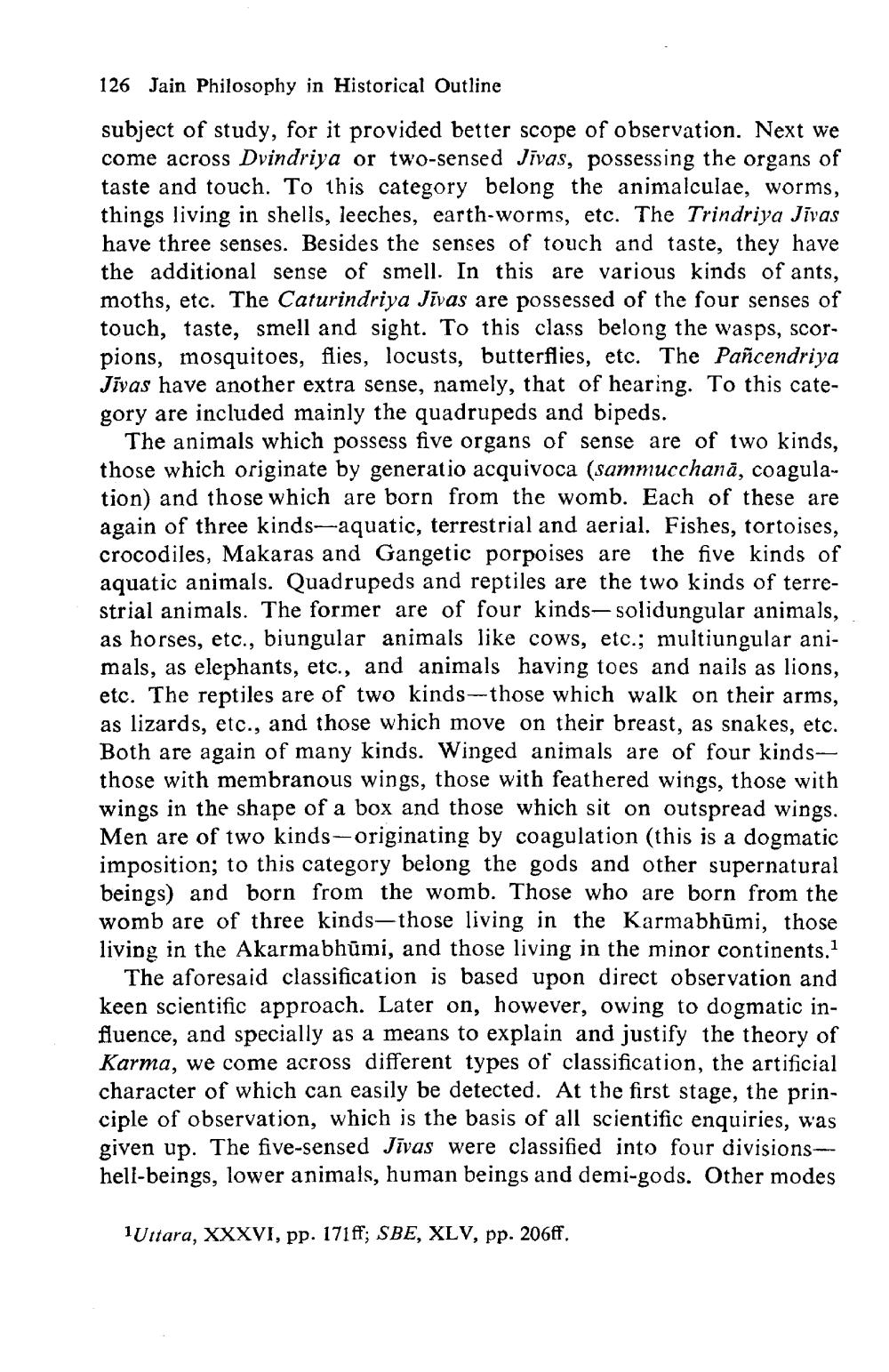________________
126 Jain Philosophy in Historical Outline subject of study, for it provided better scope of observation. Next we come across Dvindriya or two-sensed Jivas, possessing the organs of taste and touch. To this category belong the animalculae, worms, things living in shells, leeches, earth-worms, etc. The Trindriya Jivas have three senses. Besides the senses of touch and taste, they have the additional sense of smell. In this are various kinds of ants, moths, etc. The Caturindriya Jīvas are possessed of the four senses of touch, taste, smell and sight. To this class belong the wasps, scorpions, mosquitoes, flies, locusts, butterflies, etc. The Pañcendriya Jīvas have another extra sense, namely, that of hearing. To this category are included mainly the quadrupeds and bipeds.
The animals which possess five organs of sense are of two kinds, those which originate by generatio acquivoca (sammucchanā, coagulation) and those which are born from the womb. Each of these are again of three kindsmaquatic, terrestrial and aerial. Fishes, tortoises, crocodiles, Makaras and Gangetic porpoises are the five kinds of aquatic animals. Quadrupeds and reptiles are the two kinds of terrestrial animals. The former are of four kinds- solidungular animals, as horses, etc., biungular animals like cows, etc.; multiungular animals, as elephants, etc., and animals having toes and nails as lions, etc. The reptiles are of two kinds--those which walk on their arms, as lizards, etc., and those which move on their breast, as snakes, etc. Both are again of many kinds. Winged animals are of four kindsthose with membranous wings, those with feathered wings, those with wings in the shape of a box and those which sit on outspread wings. Men are of two kinds-originating by coagulation (this is a dogmatic imposition; to this category belong the gods and other supernatural beings) and born from the womb. Those who are born from the womb are of three kinds—those living in the Karmabhūmi, those living in the Akarmabhūmi, and those living in the minor continents.1
The aforesaid classification is based upon direct observation and keen scientific approach. Later on, however, owing to dogmatic influence, and specially as a means to explain and justify the theory of Karma, we come across different types of classification, the artificial character of which can easily be detected. At the first stage, the principle of observation, which is the basis of all scientific enquiries, was given up. The five-sensed Jīvas were classified into four divisionshell-beings, lower animals, human beings and demi-gods. Other modes
1Uttara, XXXVI, pp. 171ff; SBE, XLV, pp. 206ff,




